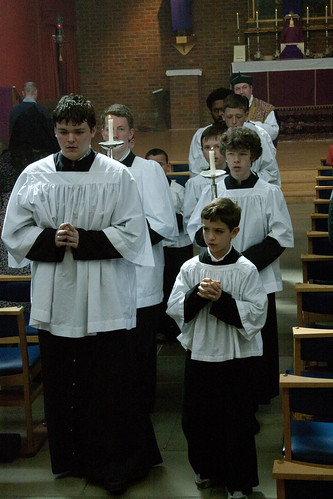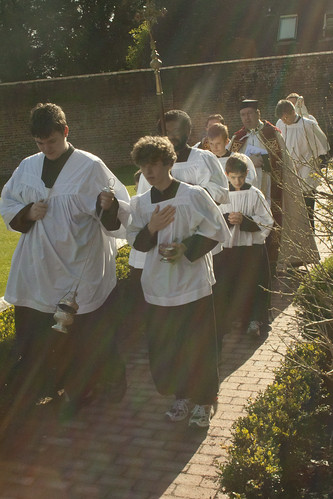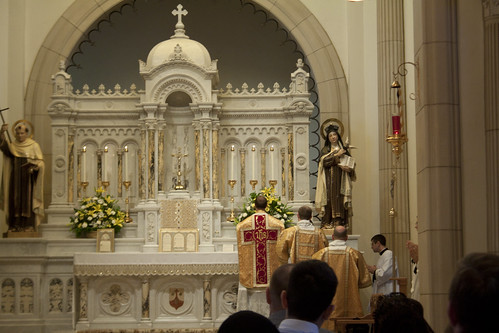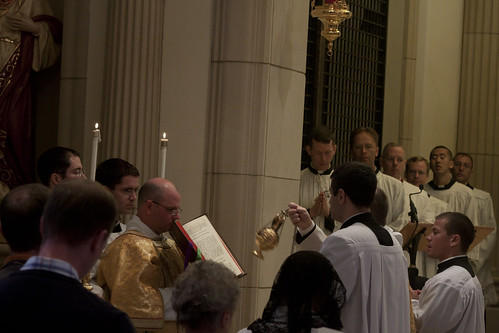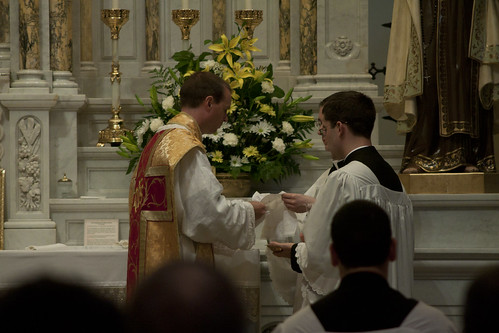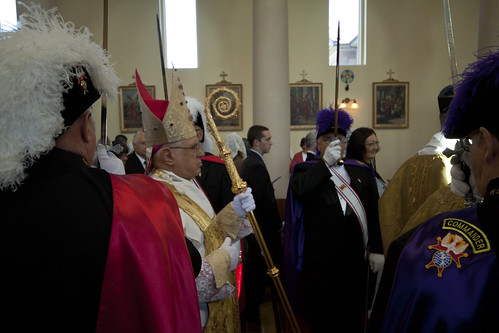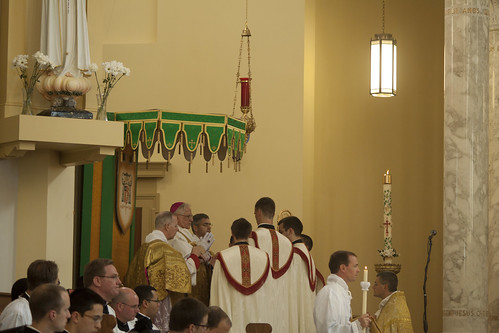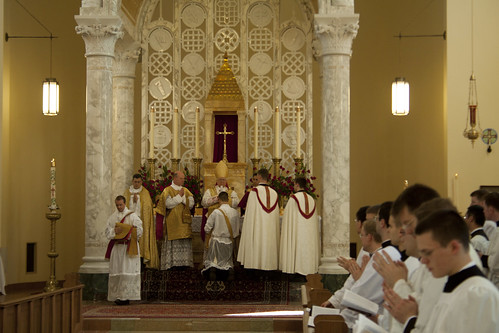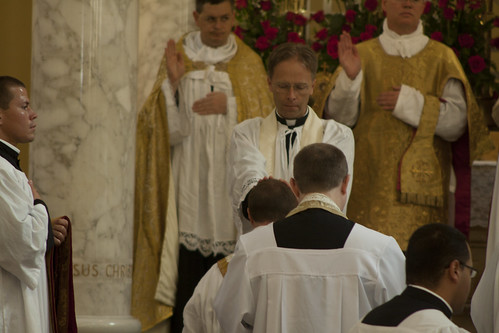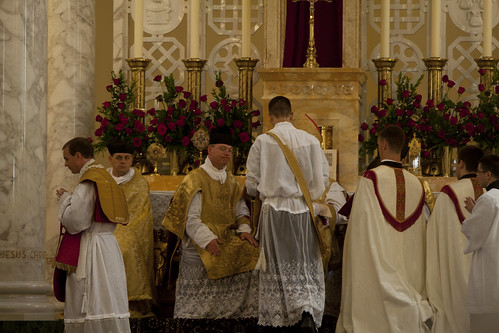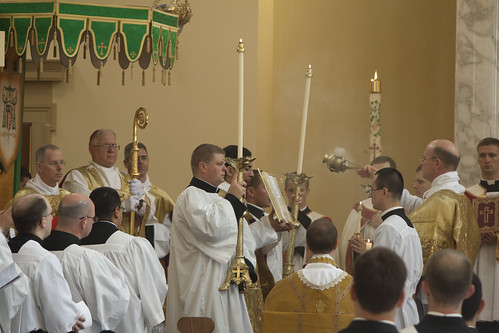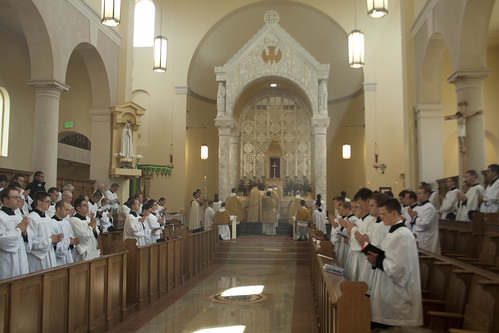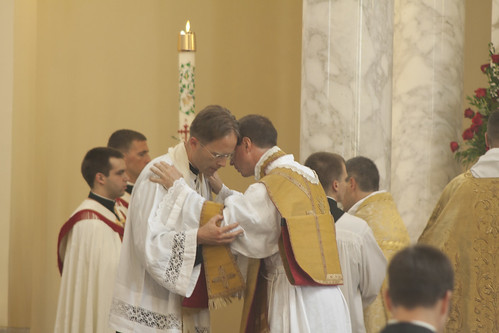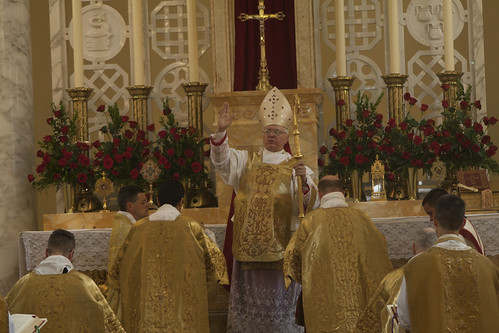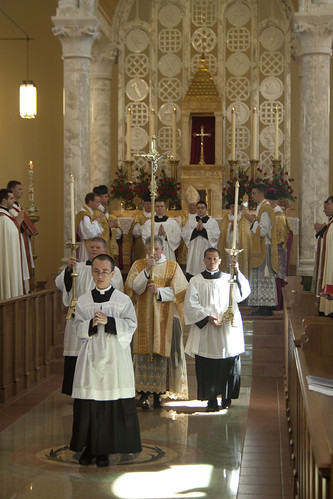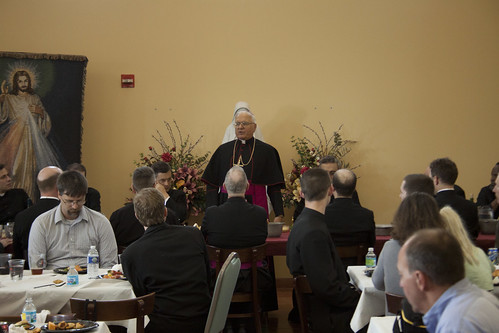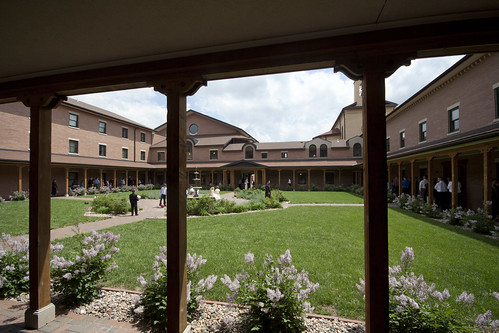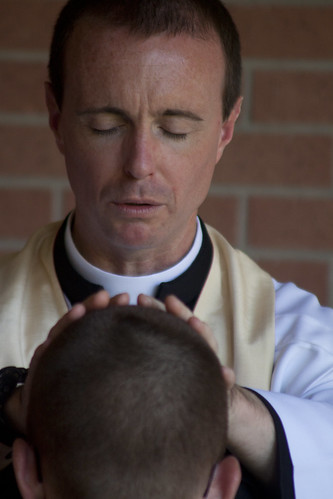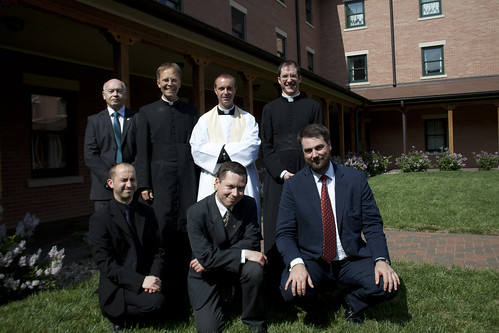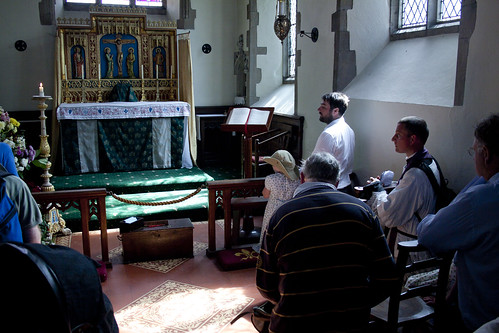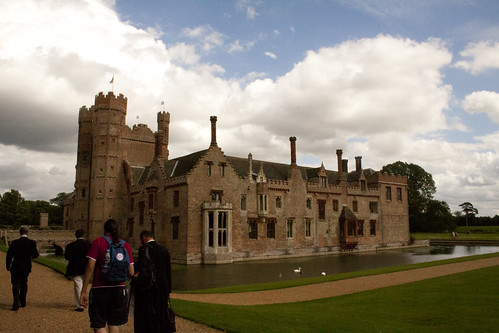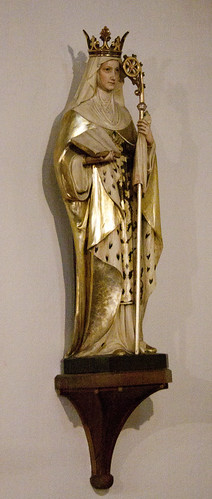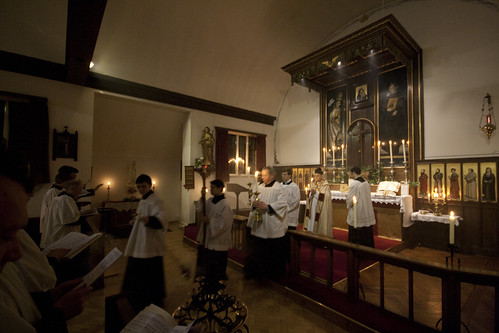
Servers processing out with the celebrant, Fr John Saward, at SS Gregory & Augustine in Oxford, past the liturgical schola.
The theological problem with girl servers is related to the impossibility of female ordination. In a nutshell, if women can't be ordained, it is innappropriate for them to assist at the altar in the quasi-clerical role of servers. If there are good reasons, as opposed to mere historical contingency, why women can't be ordained, then it would be natural for these reasons to count against female service at the altar.

It is always pointed out in the discussion of female ordination
 that Christ chose only men to be apostles and, therefore, as priests. Bl Pope John Paul II makes the point with great emphasis that this was a 'sovereign decision', not the result of social convention. To suggest that in a decision like this Our Lord was the slave of social convention is historically absurd (look at his other actions and words), and if true would undermine the whole gospel: if we can reject this decision on these grounds, then what would be left? Nevertheless, it is natural to ask why Our Lord made this decision, and John Paul answers by giving us a theological disourse on the nature and role of the feminine in the economy of salvation. He does this is Mulieris Dignitatem (On the Dignity of Women, 1988), and refers back to this in Ordinatio Sacerdotalis (1994) when he makes explicit the constant (and for that reason infallible) teaching of the Church that the Church does not have the power to ordain women. In short, it is because men and women have different characters and different roles in salvation history and the Church, as ordained by God, that God has established the reality that Holy Orders cannot be given to women.
that Christ chose only men to be apostles and, therefore, as priests. Bl Pope John Paul II makes the point with great emphasis that this was a 'sovereign decision', not the result of social convention. To suggest that in a decision like this Our Lord was the slave of social convention is historically absurd (look at his other actions and words), and if true would undermine the whole gospel: if we can reject this decision on these grounds, then what would be left? Nevertheless, it is natural to ask why Our Lord made this decision, and John Paul answers by giving us a theological disourse on the nature and role of the feminine in the economy of salvation. He does this is Mulieris Dignitatem (On the Dignity of Women, 1988), and refers back to this in Ordinatio Sacerdotalis (1994) when he makes explicit the constant (and for that reason infallible) teaching of the Church that the Church does not have the power to ordain women. In short, it is because men and women have different characters and different roles in salvation history and the Church, as ordained by God, that God has established the reality that Holy Orders cannot be given to women.At the bottom of it there is a connection between Christ's role as Priest and Victim and his masculinity. It would in fact be odd if there were not, since the priestly role, and the sacrifice of self for the community, is conformable with with the male role in human society, which I discussed in the last post. The priest as alter Christus must be a man because he is taking on this role himself. The clergy round the altar, and the altar servers, are also participating in this role, and it for that reason fitting that they be men also.
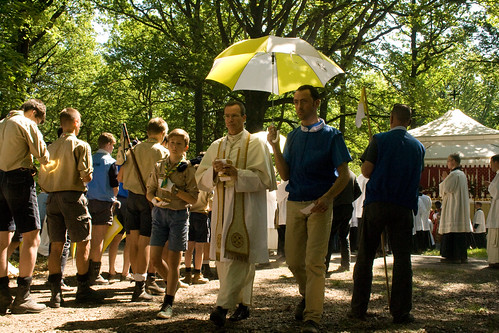
Boy scouts queing up to assist with the distribution of communion at the Chatres Pilgrimage 2010.
It really does not take a long chain of reasoning to see the application of the teaching about the all-male priesthood to girl servers. It is not possible to ordain women because it is not appropriate to their nature: saying Mass it is not part of their role in the Church. If it is totally impossible for women to say Mass, it is not appropriate for women and girls to assist the priest in the role of server. The server plays the part of a cleric: the laity serve when a cleric is not available. It is a quasi-clerical role, and it is not right that women play a clerical role.
Theology is not mathematics: theological argument does not advance by deductive syllogisms. What we have here is a case of something being, as the Scholastics constantly said, 'inconveniens': inconvient, inappropriate, unfitting. It is simply unfitting for girls to serve, because it runs contrary to the female role. In the same way it would have been unfitting for Our Lord to have been born of a woman not a virgin, for Our Lady's body to have been left in the tomb, and so on. To say that it runs against the symbolic and indeed ontological grain of the economy of salvation and the roles assigned to the sexes by the Creator is enough. It should not be done.
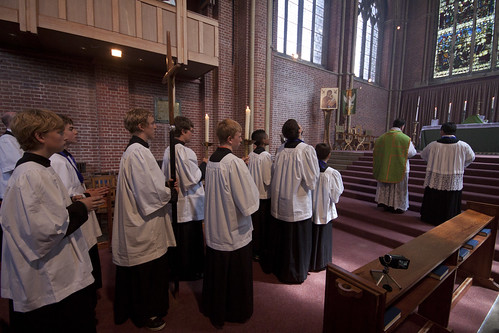
Servers about to process out at Mass at the St Catherine's Trust Summer School 2010.
But don't take my word for it; listen to this brilliant talk by Fr Brian Harrison (MP3), which he gave in the wake of the decision to allow female servers in 1992. His practical points at the end have been overtaken by events, but his theological analysis is acute. As he points out, it is perfectly clear that there is a connection between the desire to have altar girls and the desire to have women priests, nor are the most serious proponents of altar girls blind to this connection. If girls can have the quasi-clerical role of altar servers, this serves to undermine the teaching of the Church that women cannot be ordained.
Bl John Paul II's teaching on the different roles of men and women in the economy of salvation is equally true when Mass is said according to the Ordinary Form or the Extraordinary Form. The significance of this issue for the EF specifically is that the EF is the 'Traditional Mass': the Mass said, as Summorum Pontificum describes it, according to the Church's 'former liturgical traditions'. This is the Mass in which we adhere to the traditions which were current for the whole Church until a very short time ago. These are good traditions, and it is good for the Church that they be preserved. If they are lost in some contexts, it is especially good that they be preserved in others. The very document allowing girls to serve described male altar service as a 'noble tradition', and it is precisely for the preservation of traditions such as these that the 1962 Missal has been presevered - and preserved in its integrity.

